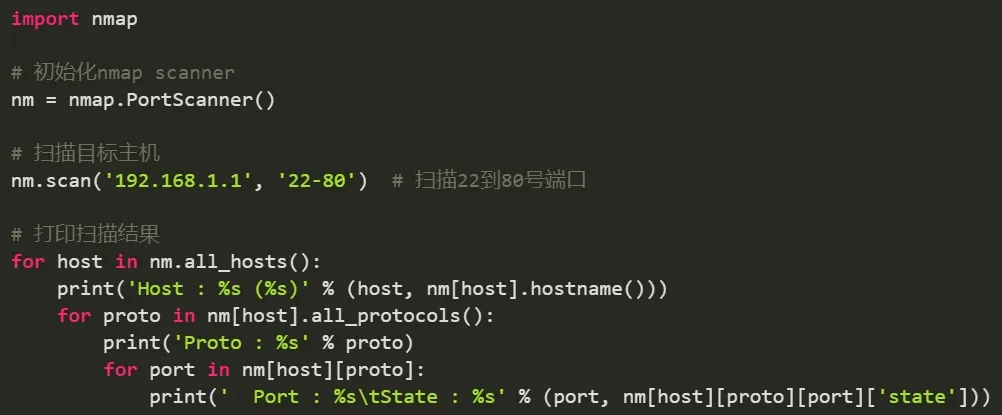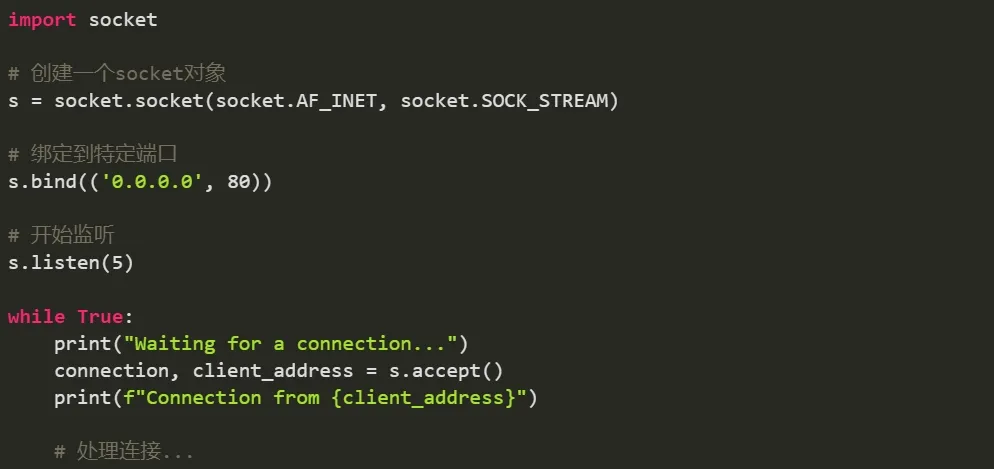 Python was designed and developed by Guido van Rossum 35 years ago and has become one of the most widely used high-level programming languages. It is characterized by its simplicity, ease of use, a thriving ecosystem, and versatility. In the cybersecurity industry, Python’s application is also very extensive, making it a fundamental skill that cybersecurity professionals must master. In modern network offense and defense, which is typically characterized by automation, Python not only helps security engineers automate defense tasks but also provides extensive toolkit support, making it a comprehensive and powerful tool, akin to a “Swiss Army knife” of programming languages.
Python was designed and developed by Guido van Rossum 35 years ago and has become one of the most widely used high-level programming languages. It is characterized by its simplicity, ease of use, a thriving ecosystem, and versatility. In the cybersecurity industry, Python’s application is also very extensive, making it a fundamental skill that cybersecurity professionals must master. In modern network offense and defense, which is typically characterized by automation, Python not only helps security engineers automate defense tasks but also provides extensive toolkit support, making it a comprehensive and powerful tool, akin to a “Swiss Army knife” of programming languages.
Reasons Why Python Is Suitable for the Cybersecurity Industry
Surveys show that Python has become the preferred language for cybersecurity professionals, mainly for the following reasons:
1
Simple and Easy to Use
The primary reason for Python’s rapid popularity in the cybersecurity industry is its simplicity and lightweight characteristics. Because it is easy to learn, even novice cybersecurity personnel can quickly master and use it. Python has clear syntax and a simple code structure, greatly simplifying the development process and allowing programmers to focus on implementing desired cybersecurity functions rather than dealing with the complexity of the language. In addition, its readability enhances collaboration among team members in security development, improving work efficiency.
2
Wide Applicability
Python has broad applicability in cybersecurity system development. By providing a comprehensive toolkit for numerous cybersecurity protection tasks, Python has become a universal language for cybersecurity professionals worldwide. Whether it is for vulnerability assessment, forensic analysis, malware analysis, or automated scanning of networks and ports, as well as other repetitive cybersecurity tasks, Python has proven to have powerful functional capabilities.
3
Easy Integration
In addition to its wide range of uses, Python can also integrate efficiently and seamlessly with other programming languages and technologies during cybersecurity system development. Flexibility and integration capabilities are important factors in Python’s power. It can connect seamlessly with various systems and technologies such as mainstream databases, web services, and APIs, ultimately enhancing interoperability and collaboration. With Python’s rich libraries and frameworks, cybersecurity developers can leverage pre-built modules to accelerate the development cycle and enhance functionality. Moreover, being platform-independent, Python can run on all major operating systems (Windows, Mac, and Linux) and is compatible with other popular programming languages such as Java and C, making it easy to integrate into existing IT infrastructure without impacting the operations of current business systems.
4
Automation Capabilities
With the global surge in AI technology applications, Python has been viewed as a dedicated language for AI or big data development, and automation is the cornerstone of achieving efficient cybersecurity protection practices. Utilizing the powerful automation capabilities provided by Python, security teams can simplify repetitive tasks such as vulnerability scanning, threat detection, and incident response. By automating daily processes, organizations can improve operational efficiency, minimize human errors, and enhance overall security posture. Python’s automation capabilities extend beyond security, helping organizations achieve automation in management and operational tasks, such as supply chain management and system configuration management.
5
Comprehensive Ecosystem Support
Python has a vibrant open-source ecosystem that provides users with abundant resources, including a wide range of modules, toolkits, code libraries, and frameworks, to meet various types of security development needs and provide ready-made solutions for common challenges. Additionally, Python’s active community ensures continuous development and support, with developers from around the world contributing to its growth and refinement.
Common Uses of Python in Cybersecurity
Python is currently widely used in the cybersecurity field, and here are some common uses of Python in cybersecurity along with corresponding code examples (this section is cited from the public account “Python Collector”). It should be noted that cybersecurity work requires specialized knowledge and a sense of ethical responsibility, and relevant laws and regulations should be followed to ensure that technology is used for legitimate and lawful purposes.
1
Network Scanning and Monitoring
Usage: Write scripts in Python to scan for open ports and services on the network and monitor network activity.
Example: Use the nmap library for network scanning.

2
Penetration Testing
Usage: Write penetration testing scripts to test system security vulnerabilities.
Example: Use the sqlmap library for SQL injection detection.

3
Malware Analysis
Usage: Analyze suspicious files and network traffic to detect malware.
Example: Use the capstone library for binary code analysis.

4
Security Auditing
Usage: Automate auditing the security configurations of systems and applications.
Example: Use the os and subprocess modules to check the status of system services.

5
Development of Security Tools
Usage: Develop custom security tools and scripts to meet specific security needs. Example: Write a simple port listening monitoring script.

(Content source: e安在线)
END

【活动】集智汇能 共筑安全——湖南省网络空间安全协会专家咨询委员会2023年新春座谈会成功召开
【活动】聚势谋远 拓启新篇——湖南省网络空间安全协会2022年度工作会议顺利召开
【活动】湖南公安机关举办2022年国家网络安全宣传周法治主题日活动
【视频】盘点湖南网络安全这十年视频来啦!速看
【活动】湖南省2022年工业互联网安全深度行暨网络安全应急演练活动成功举
【活动】我协会等保专委会2022年第一次工作座谈会成功举行